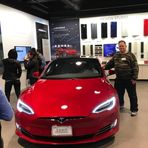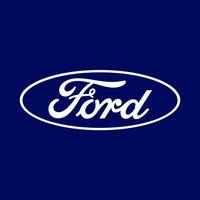Tesla's Turbulent Road: Crashes, Recalls, and Regulatory Scrutiny
August 26, 2024, 3:37 am

Location: United States, Texas, Austin
Employees: 10001+
Founded date: 2003
Total raised: $3.86B

Location: United States, Michigan, Ypsilanti
Employees: 10001+
Founded date: 1896
Total raised: $40K
Tesla is a titan in the electric vehicle (EV) landscape. Yet, its journey is marred by turbulence. Recent incidents have thrust the company into the spotlight, raising questions about safety and reliability. The National Transportation Safety Board (NTSB) has opened an investigation into a crash involving a Tesla electric semi-truck in California. This incident is a stark reminder that even the most advanced technology can falter.
On a late August night, a Tesla semi-truck crashed near Emigrant Gap. The vehicle's engine caught fire, closing a highway for over half a day. Fortunately, no injuries were reported. However, the fire's nature raised alarms. EV fires burn differently than traditional vehicle fires. They can last longer and are notoriously difficult to extinguish. This incident highlights the unique challenges posed by electric vehicles.
The NTSB is not alone in its scrutiny. The California Highway Patrol is also involved in the investigation. Together, they will sift through the wreckage to uncover the truth. This is not the first time Tesla has faced such scrutiny. The company has been under the microscope for various safety concerns, particularly regarding its Autopilot feature. Each incident chips away at the brand's reputation.
In a separate but related issue, Tesla announced a recall of over 9,000 Model X SUVs. The National Highway Traffic Safety Administration (NHTSA) reported that a trim on the roof could separate, posing a crash risk. This recall is notable. Tesla typically addresses issues through over-the-air software updates. Physical recalls are rare for the company.
The recall affects 9,136 vehicles. The NHTSA's letter explained that the roof trim may not have been properly adhered to the vehicle. Without primer, the trim could detach over time. This creates a potential road hazard. Tesla plans to test the adhesion and reattach the trim pieces at no cost to owners.
These incidents are part of a larger narrative. Tesla has recalled nearly 2.6 million vehicles in the first half of 2024 alone. This figure places it second only to Ford, which recalled about 3.6 million vehicles. The sheer volume of recalls raises eyebrows. It suggests that Tesla's quality control may be slipping.
Safety is paramount in the automotive industry. Consumers expect their vehicles to protect them. Tesla's recent troubles could erode trust. The company has built its brand on innovation and safety. Yet, with each incident, that foundation is tested.
Regulatory bodies are paying close attention. The NTSB and NHTSA are not just watching from the sidelines. They are actively investigating and recalling vehicles. This increased scrutiny could lead to stricter regulations. Tesla may find itself navigating a more complex landscape.
The electric vehicle market is booming. Consumers are eager for sustainable options. However, safety concerns could dampen enthusiasm. Potential buyers may hesitate. They want assurance that their investment is safe.
Tesla's competitors are watching closely. Companies like Ford and General Motors are ramping up their EV offerings. They are keen to capture market share. If Tesla stumbles, others may seize the opportunity.
The road ahead is uncertain. Tesla must address these safety concerns head-on. Transparency is crucial. The company needs to communicate effectively with its customers. They must assure them that safety is a priority.
Innovation is a double-edged sword. Tesla has pushed the boundaries of technology. Yet, with innovation comes risk. The company must balance cutting-edge advancements with safety.
The recent crash and recall are wake-up calls. They serve as reminders that technology is not infallible. Tesla's reputation hangs in the balance. The company must act decisively to restore confidence.
In conclusion, Tesla's journey is fraught with challenges. The recent crash and recall highlight the complexities of the EV landscape. As the company navigates these turbulent waters, it must prioritize safety and transparency. The road ahead may be rocky, but with the right approach, Tesla can steer back on course. The future of electric vehicles depends on it.
On a late August night, a Tesla semi-truck crashed near Emigrant Gap. The vehicle's engine caught fire, closing a highway for over half a day. Fortunately, no injuries were reported. However, the fire's nature raised alarms. EV fires burn differently than traditional vehicle fires. They can last longer and are notoriously difficult to extinguish. This incident highlights the unique challenges posed by electric vehicles.
The NTSB is not alone in its scrutiny. The California Highway Patrol is also involved in the investigation. Together, they will sift through the wreckage to uncover the truth. This is not the first time Tesla has faced such scrutiny. The company has been under the microscope for various safety concerns, particularly regarding its Autopilot feature. Each incident chips away at the brand's reputation.
In a separate but related issue, Tesla announced a recall of over 9,000 Model X SUVs. The National Highway Traffic Safety Administration (NHTSA) reported that a trim on the roof could separate, posing a crash risk. This recall is notable. Tesla typically addresses issues through over-the-air software updates. Physical recalls are rare for the company.
The recall affects 9,136 vehicles. The NHTSA's letter explained that the roof trim may not have been properly adhered to the vehicle. Without primer, the trim could detach over time. This creates a potential road hazard. Tesla plans to test the adhesion and reattach the trim pieces at no cost to owners.
These incidents are part of a larger narrative. Tesla has recalled nearly 2.6 million vehicles in the first half of 2024 alone. This figure places it second only to Ford, which recalled about 3.6 million vehicles. The sheer volume of recalls raises eyebrows. It suggests that Tesla's quality control may be slipping.
Safety is paramount in the automotive industry. Consumers expect their vehicles to protect them. Tesla's recent troubles could erode trust. The company has built its brand on innovation and safety. Yet, with each incident, that foundation is tested.
Regulatory bodies are paying close attention. The NTSB and NHTSA are not just watching from the sidelines. They are actively investigating and recalling vehicles. This increased scrutiny could lead to stricter regulations. Tesla may find itself navigating a more complex landscape.
The electric vehicle market is booming. Consumers are eager for sustainable options. However, safety concerns could dampen enthusiasm. Potential buyers may hesitate. They want assurance that their investment is safe.
Tesla's competitors are watching closely. Companies like Ford and General Motors are ramping up their EV offerings. They are keen to capture market share. If Tesla stumbles, others may seize the opportunity.
The road ahead is uncertain. Tesla must address these safety concerns head-on. Transparency is crucial. The company needs to communicate effectively with its customers. They must assure them that safety is a priority.
Innovation is a double-edged sword. Tesla has pushed the boundaries of technology. Yet, with innovation comes risk. The company must balance cutting-edge advancements with safety.
The recent crash and recall are wake-up calls. They serve as reminders that technology is not infallible. Tesla's reputation hangs in the balance. The company must act decisively to restore confidence.
In conclusion, Tesla's journey is fraught with challenges. The recent crash and recall highlight the complexities of the EV landscape. As the company navigates these turbulent waters, it must prioritize safety and transparency. The road ahead may be rocky, but with the right approach, Tesla can steer back on course. The future of electric vehicles depends on it.